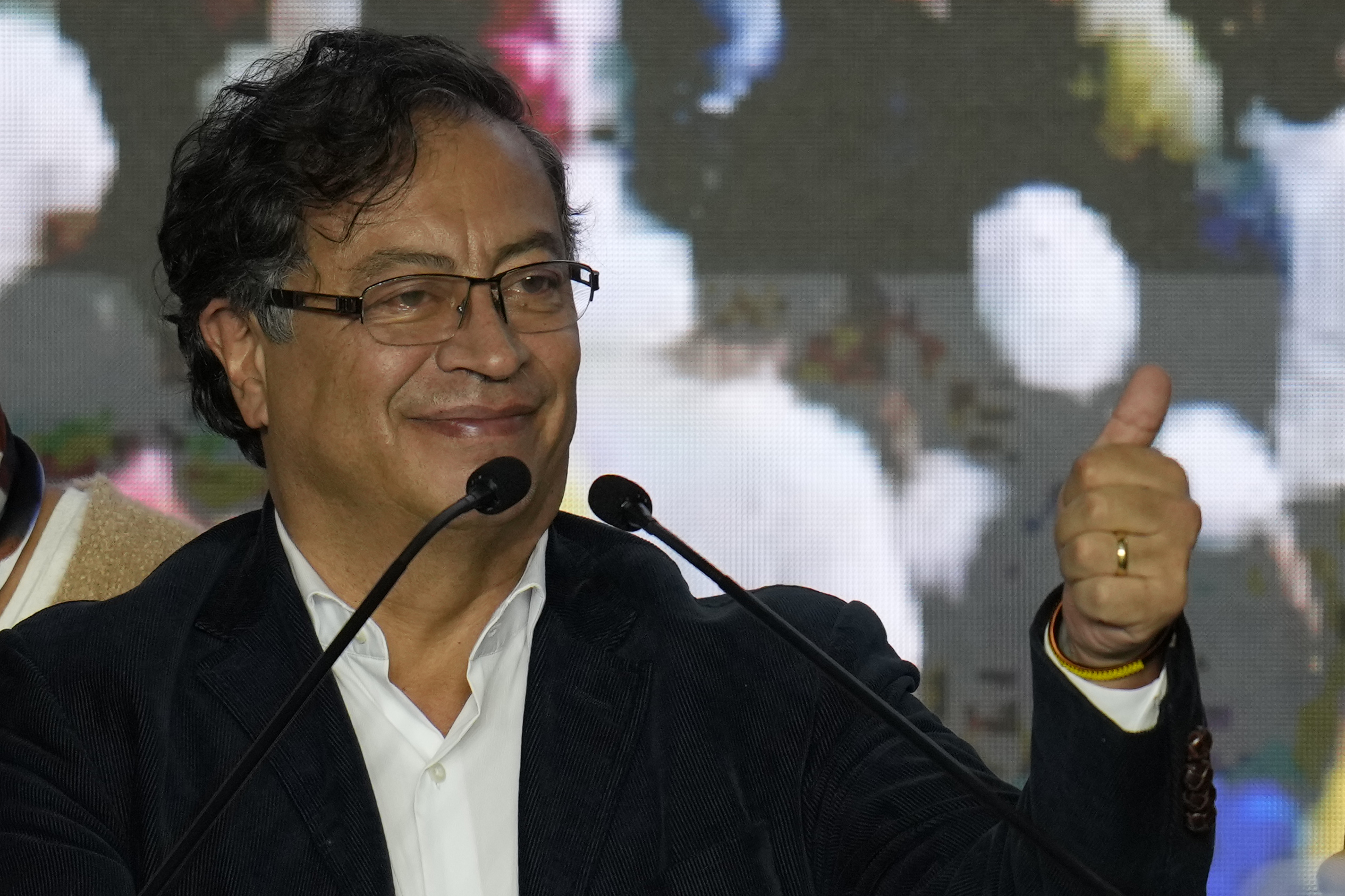He chose Barcelona to present his electoral program in Europe and had Oriol Junqueras on stage and Juan Carlos Monedero as opening act. The European tour last January, which included an appointment with Pedro Sánchez, was organized by Enrique Iglesias, a deputy from the Communist Party and adviser to the FARC in the peace negotiations in Cuba with the Santos government. Also on the trip he included an important stop in Rome for a private meeting with the Pope.
Although he tries to be perceived as a candidate without ideological biases, capable of uniting all Colombians, in his third attempt to win the presidency, Gustavo Petro has not been able to hide his tendency to the extreme left. Although he proclaims that in the XXI century there is no longer a division between right and left, but now there are two large fields: “The politics of life and death.” In the first, he frames the Historical Pact, a movement created for the 2022 elections, to which the Democratic Pole, the Patriotic Union and the Colombian Communist Party belong, among others. In the one about “death”, he includes Álvaro Uribe and the entire right.
Despite his proposal to make Colombia “a power of love and affection”, he has toughened his speech and does not hesitate to brand the government of Iván Duque as a “murderer” or insinuate that the candidate of the center right and the traditional parties, the independent ‘Fico’ Gutiérrez, was behind one of the alleged attempts to take his life.
Petro was born in Ciénaga de Oro, a town in the department of Córdoba, but soon the family moved to Zipaquirá, in Boyacá, in the center of the country, where he would begin both his political career as a councilor and his link to the M-19 guerrilla.
During his subversive time he adopted the aliases ‘Aureliano’ and ‘Andrés’, but it is not clear what role he played. According to Petro, he learned to use weapons although he never shot a human being and assures that when his companions stormed the Palace of Justice in 1985, a terrorist act that cost more than a hundred lives, he was detained and subjected to torture.
Married to Verónica Álcocer, a member of a well-known family from the Caribbean coast, and father of five children from different unions, in 1989, after the signing of peace with the M-19, Gustavo Petro returned to civility and dedicated himself fully to politics. He has been a congressman and a senator, and it was in the Senate where he began to shine for his oratory and the debates he led against the politics of Álvaro Uribe, whom he has made the main target of his diatribes.
Moved by the popularity that his figure aroused in left-wing sectors, in 2010 he aspired for the presidency for the first time, endorsed by the socialist Democratic Pole, a party that he would later leave. After failing in his attempt, a year later he was elected mayor of Bogotá, a position where he left his personal mark. Authoritarian, stubborn, impetuous, not fond of listening to advice, he took controversial measures that further deepened the division between his followers and a broad social sector that fears that he could turn the country into another Venezuela.
In 2018 he tried again to conquer Casa Nariño but Duque defeated him by a difference of two million, partly thanks to those millions who feel close to Chavismo. Aware of the fear he instills, during the campaign he signed before a notary that he will never expropriate private property. Economists are also concerned about some of his proposals that they consider unfeasible and ruinous for public finances, such as the State hiring the three million unemployed if they cannot find work in the private sector, with a minimum wage.
A few days ago he declared at a rally that Rodolfo Hernández became a millionaire for being corrupt. The problem for Petro, who preferred to have had ‘Fico’ Gutiérrez as his opponent, is that he can no longer brand his rival as an Uribista or as a member of the oligarchy and political class as always. From now on, he must change his strategy.
Conforms to The Trust Project criteria
















